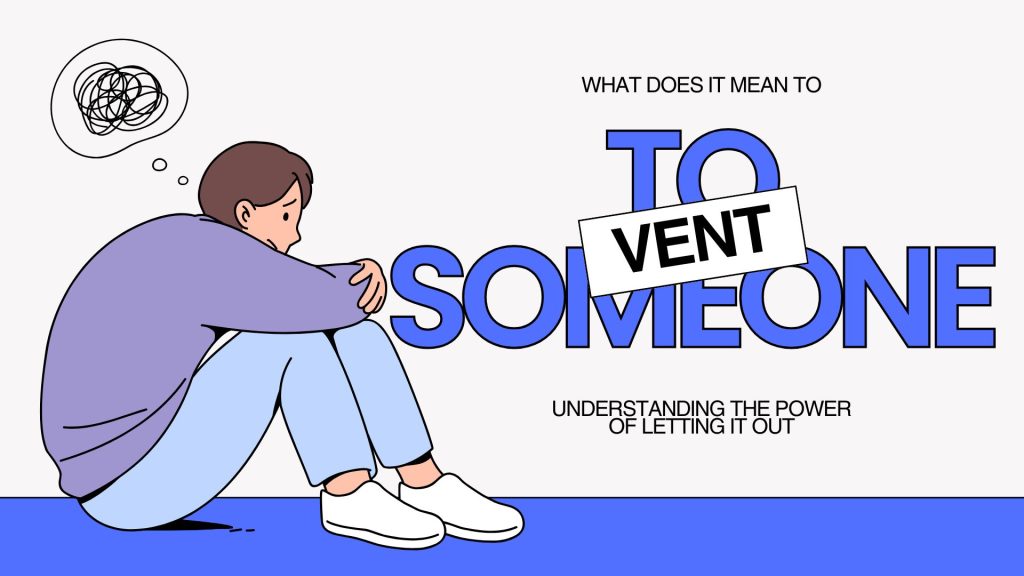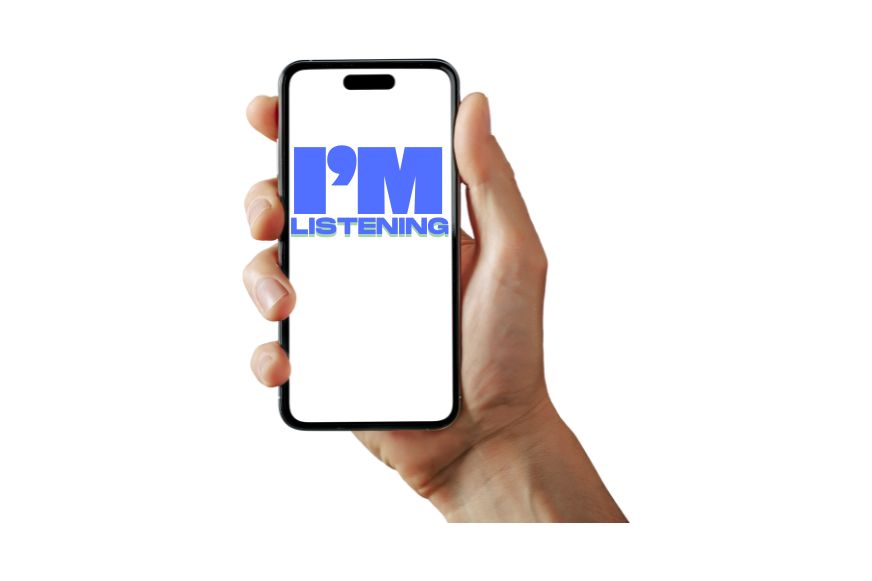
We’ve all said it at some point — “I just need to vent.”
But what does that really mean?
To vent to someone means to release bottled-up emotions — frustration, sadness, stress, or anxiety — by talking them out. It’s not about seeking advice or fixing the problem right away. It’s about being heard.
If you’ve ever wondered “what does it mean to vent to someone,” or seen someone text “Can I vent?” — this article will explain the meaning of venting, why it’s important, and how it can help you find emotional relief.

In simple terms, venting is the act of expressing your emotions — often anger, stress, or frustration — so you don’t have to carry them alone.
The venting definition can be summarized as:
“The process of releasing strong emotions, especially frustration or stress, through talking or expression.”
This release helps reduce emotional pressure. Just like a vent lets air escape from a container, emotional venting lets feelings escape before they build up to an unhealthy level.

When someone says, “Can I vent to you?” they’re asking for permission to share something heavy without judgment or interruption.
It doesn’t always mean they want advice — often, they just want a safe listener.
So if a friend or partner asks, “Can I vent?” or “Can I vent to you?”, the best thing you can do is listen. That small act of empathy can mean more than any solution.
💡 Tip: Respond with something simple like “Of course, go ahead” or “I’m here for you.”

When we vent emotions, we give them somewhere to go — out of our heads, into words, and into understanding.
Bottling up feelings might seem like strength, but it can lead to burnout, irritability, and even physical stress.
Healthy venting is about balance: letting out emotions without spiraling into negativity.
Some examples of healthy venting include:
Talking to a trusted friend or family member
Writing in a journal
Sharing anonymously online
Speaking to a listener through platforms like Someone Listens
The phrase “vent out” means to release or express your emotions — especially when they’ve been building up.
To vent out frustration is to express it in a healthy way instead of suppressing it. For instance:
“I had a long day and just needed to vent out to someone who would listen.”
So when you say “I need to vent”, what you’re really saying is, “I need someone to listen so I can breathe again.”
In texting or social media, you might see people say “Can I vent?” or “I just need to vent real quick.”
Here, venting usually means sharing something emotional — maybe about work, relationships, or life stress — to feel better.
Online venting has become common because it offers privacy and immediate access to understanding listeners.
However, not all online spaces are safe. Some forums may lack empathy or confidentiality.
That’s where Someone Listens comes in — giving you a safe, anonymous space to talk through your emotions with a real listener who genuinely cares.
Venting helps you:
Process emotions clearly.
Reduce mental pressure.
Feel validated by another person’s empathy.
Gain perspective once the emotions are expressed.
It’s not about solving everything — it’s about making space for healing.
When you vent, you give yourself permission to feel. When someone listens, they give you permission to heal.
Sometimes you just need someone who listens — not someone who diagnoses, judges, or interrupts.
That’s why Someone Listens was created.
We provide a compassionate space to vent emotions safely, anonymously, and affordably.
With Someone Listens, you can:
Talk to a real listener anytime.
Share what’s on your mind without stigma.
Get relief through conversation — not correction.
Start with a $5 introductory call and feel the difference of being heard.

So, what does it mean to vent to someone?
It means giving yourself the freedom to express what hurts — and finding peace in being understood.
Venting is not weakness; it’s self-care.
It’s how we process pain, find clarity, and remember we’re not alone.
You can vent. You can breathe. You can be heard.

Brandon holds a major in Psychology and has a background that's affforded him the opportunity to meet people from all walks of life. With a never-ending curiosity for the human-mind and empathy for those in need, he's turned Someone Listens into one of the top alternatives to traditional counseling.
